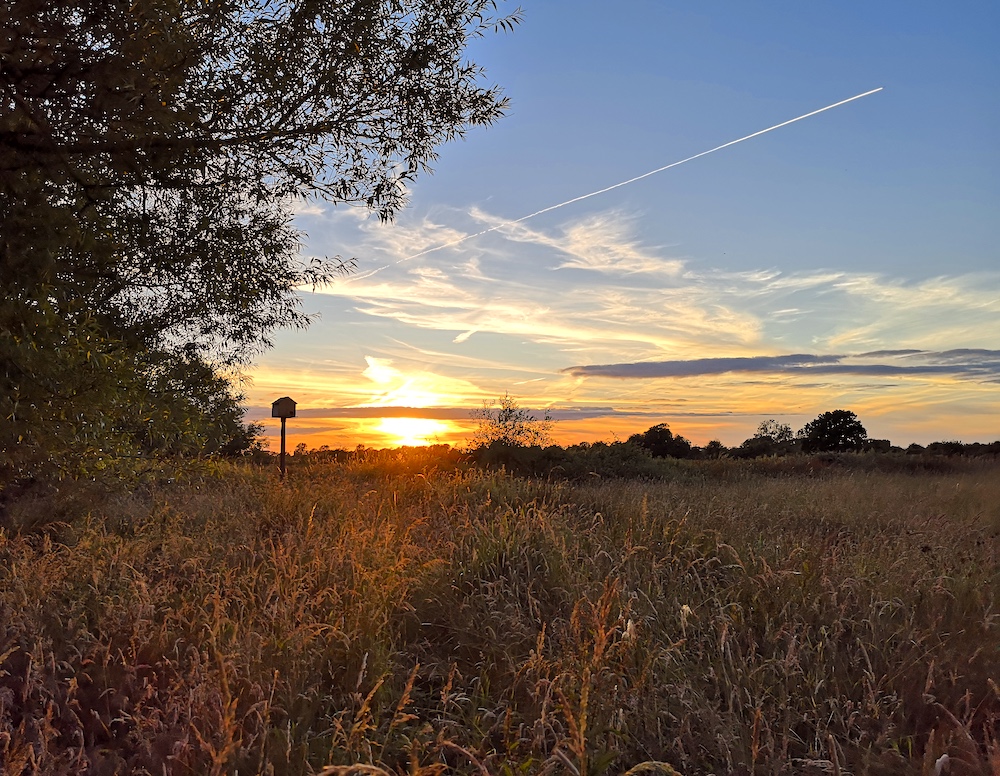Helping wildlife to weather a changing climate
- 8 August 2022
-
 Meriel Harrison
Meriel Harrison
- Climate change, Trees
The recent intense heatwave arrived during a summer of prolonged dry weather, creating challenging conditions not only for people but for wildlife as well. The climate emergency means that we are going to see extreme weather events like this happening more often. It’s vital that we take action to help support wildlife to cope with these conditions as best we can, not only for this summer but also for the longer-term future.

How do hot conditions impact on wildlife?
Heat stress and dehydration will have affected many different species during the July heatwave, and the RSPCA reported a surge in calls from the public seeking help for casualties including hedgehogs and foxes. Baby birds are vulnerable and may be forced to take the risk of fledging early to escape an overheating nest.
As plants become scorched and withered from the intense heat and ongoing drought, life cycles are disrupted. There are particular concerns about the impacts on butterfly populations, as caterpillars will have been killed by the heat and the loss of their food sources. Dry vegetation also increases the risk of fires, such as the blaze at Wild Ken Hill nature reserve in Norfolk which destroyed 33 hectares of wildlife habitat.
When water levels run low in rivers and waterways from the combined effects of drought and over-extraction, the temperature of the water increases and the amount of oxygen it can hold decreases. This can be fatal for fish, and low water levels also make it harder for more mobile species such as water voles to move around.
How to help wildlife in the heat
Most garden wildlife needs the same things that we do in the heat: access to shade, shelter and water. Being able to find water regularly is vital for all creatures, but there are far fewer ponds than there used to be in the UK. Putting out shallow dishes of water for birds and hedgehogs will really help them to get through a hot spell.
Reducing our own water use means less water needs to be extracted from rivers and reservoirs. If you need to water your garden, a water butt will allow you to make the most of any rainwater. ‘Grey water’ left over from washing up, or captured in a bucket in the shower, will also keep your plants happy. Lawns don’t need regular watering, and while they may turn yellow and crispy during drought they will soon revive to a lush green when the rain returns.
As well as providing habitats and food for a wide range of species, trees have incredible natural cooling properties and have been shown to reduce land surface temperatures in urban areas by as much as 12°C. Trees and shrubs in your garden will create shady oases for you and your garden creatures to enjoy. You can also create cooler habitat niches by leaving some longer vegetation such as a wild meadow corner and allowing climbers like ivy to grow over bare surfaces.
If you are putting up nest boxes, take into account the movements of the sun and put the boxes where they won’t be in the direct sunlight, especially during the middle of the day.
What action is YACWAG taking?
YACWAG is planning for the future to make our reserves and communities more resilient to the effects of more frequent and intense extreme weather events, including heatwaves.
Barn owls and kestrels breed and roost in the owl boxes we provide on our reserves. High temperatures such as we have seen recently can be very challenging for the birds, and we are looking at how we can adapt the design and positioning of our boxes to ensure that they don’t overheat.
We also hope to work closely with the Internal Drainage Board to improve water level management in the local rhynes and ditches so there is enough depth of water to support the species that make a home there, from damselflies to diving beetles.
Since YACWAG was established we have been planting trees in the villages of Yatton and Congresbury and in 2020 we planted a small orchard at Kenn Moor. In the past year we have replaced three street trees in Yatton and planted trees at our Cobthorn Reserve in Congresbury. Increasing the tree canopy cover will provide cool shade for generations to come in our communities.
© Copyright YACWAG, or original authors. All rights reserved. | Registered charity 1076362 | Privacy policy | Cookie policy | Terms & Conditions |Web design: StanfordGraphics


